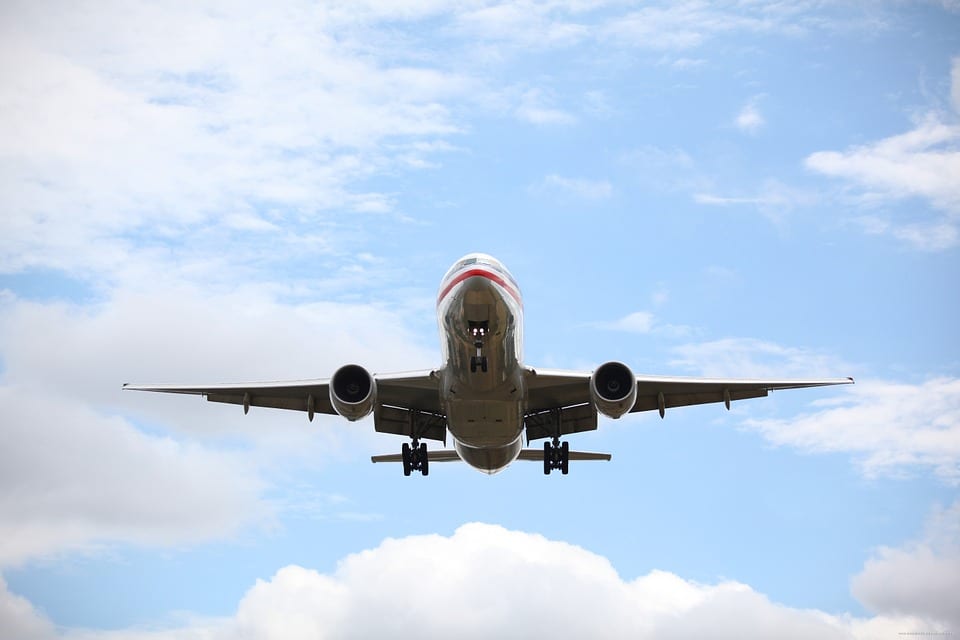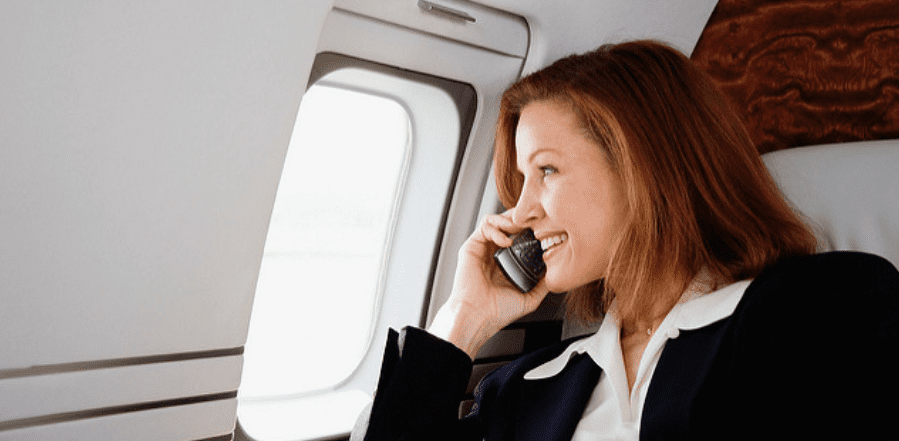If you travel a lot for work or pleasure, you know the routine. You board your flight, put away your bags, and then you have your face glued to your cell phone (or tablet or laptop) until the plane doors are closed and the friendly flight attendant tells you it’s time to power down your phone or put it in “Airplane mode.” Then you sit and twiddle your thumbs for the next couple of hours and try to avoid having a conversation with the person next to you.
We all obediently do as we’re told because it’s common knowledge that the signals from our phones might interfere with the plane’s instruments and that might cause some serious problems for the pilots (and passengers). Right?
Well, not exactly.

Photo Credit: Pixabay
Patrick Smith, a pilot and author of the book Cockpit Confidential, says, “Can cellular communications really disrupt cockpit equipment? The answer is potentially yes, but in all likelihood no, and airlines and the Federal Aviation Administration (FAA) are merely erring on the better-safe-than-sorry side.”
Smith also estimates that at least half of all phones are left on during flights either inadvertently or just because passengers don’t feel like complying with the command. The pilot and author also added that if the airlines were so concerned with cell phones interfering with the pilots’ instruments, they would enforce the policy more actively.
An anonymous flight attendant said, “Nobody turns off their phones. I don’t, even. All of those commands are really just precautionary. Keep your phone on. No one cares.”
Ouch. Good thing she remained nameless because I have a feeling her superiors wouldn’t be too happy with her.

Photo Credit: Unsplash, Marten Bjork
How do you think pilots navigate us safely from one destination to another? The answer: iPads. And those little gadgets the flight attendants use to charge you for your double whiskey and Coke are also using WiFi and you don’t see planes falling out of the sky, right? That’s exactly right.
But that’s only a few devices onboard a plane. What happens if 250 people are all using devices at the same time? That has to cause some problems, right?
Well, no. Studies have failed to find a causal relationship between cell phone signals and interference with the systems on aircraft. Period. Some international airlines have allowed passengers to use cell phones, tablets, Kindles, etc., for years, and we have yet to hear any horror stories about a rogue signal bringing down an aircraft.
It seems that these regulations are more about getting passengers to pay attention, because there is no evidence that the signals from mobile devices will cause any harm. When pressed about the rules, many in the airline industry bring up the old argument that the passengers need to pay attention during taxiing, take-off, and landing because that is when most accidents occur. Especially important, industry talking heads say, is the safety demonstration by flight attendants.

Photo Credit: Unsplash, Hanson Lu
So maybe that’s the real reason the airlines, the FAA, and the FCC seem eager to keep the ban in place. People yakking away on their phones, watching movies on their iPads, and texting away like mad keeps them from being alert and present during the most crucial times of the flying experience. But why not just come out and say that? We live in a strange world, people.
For now, the Federal Communications Commission bans using cell phones on planes, but that may change sooner rather than later with rapid advances in technology.
I guess it’s better to be safe than sorry for now, but there doesn’t seem to be a whole lot of good reasons to power down that phone when you’re flying the friendly skies. Though I do have to admit I love a couple hours of relative silence and not overhearing other peoples’ conversations.
Plus no one at work can reach me while I’m in a plane, and that’s worth any price.






